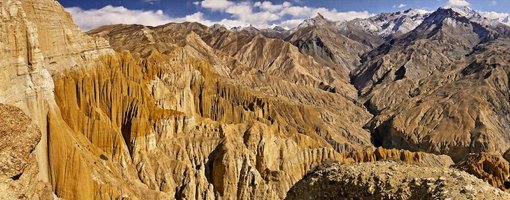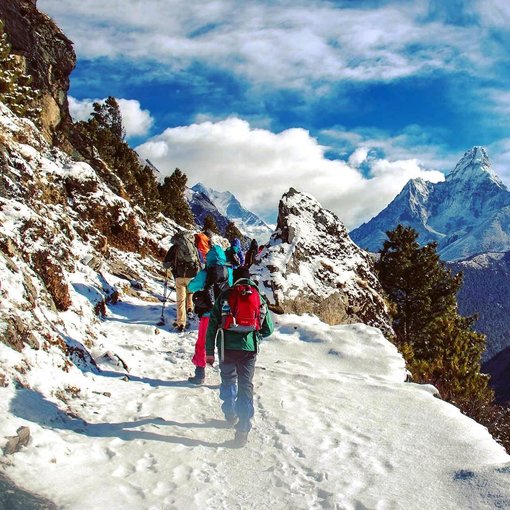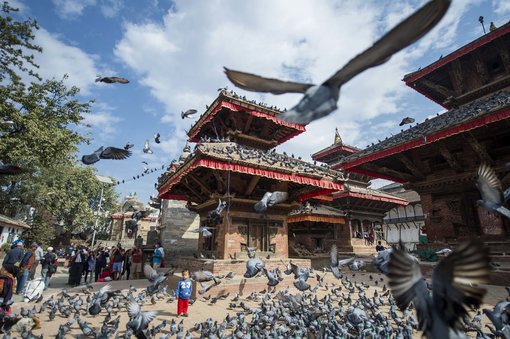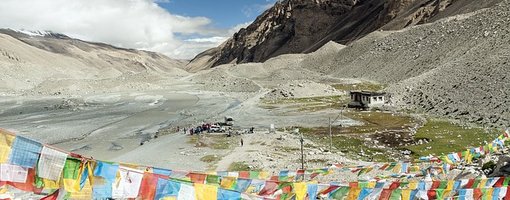Nepal is located in South Asia and shares regional borders with India and China. Formerly ruled as a state, today it is the Federal Democratic Republic. Nepal is known for its natural beauty, the iconic Himalayas running in the northern and western parts of the country. Eight of the world's 10 highest mountains, including Mount Everest, fall within its borders. Although a relatively small country with its neighbors, it has an amazing variety from the rugged Himalayas in the north to the wet plains in the south. The capital and largest city is Kathmandu. The currency of Nepal is Nepali Rupee (NPR).
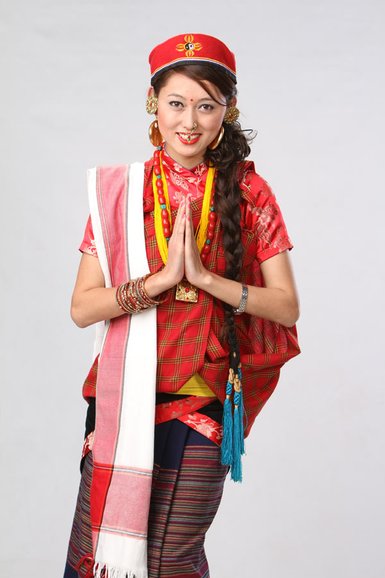
A Buddhist Girl welcoming position
Buddhism in Nepal
Buddhism is a world religion founded by Buddha (Siddhartha Gautama). The religion taught by the Buddha, who was born about 2,200 years ago today, has been organized in various sources and propagated throughout the rest of Asia.
Buddhism has two major branches, Southern Buddhism (Hinana) and Northern Buddhism (Mahayana). Southern Buddhism spread to Myanmar, Thailand, and Sri Lanka, while Northern Buddhism spread to China, Vietnam, and Japan. Buddhism was introduced to Japan from the Korean Peninsula in the early 6th century.
Founded by Gautama Buddha, Buddhism has been around for centuries and has spread widely, freeing people from suffering throughout the ages and contributing greatly to the development of Asian culture.
Lumbini, the birthplace of the Buddha of Nepal
Buddha was born in Lumbini, in the middle of Kapilavastu, the birthplace of his father Sudhodana, the chief of the Shakya clan, and the birthplace of his mother Maya Devi. When Maya Devi Buddha became pregnant, she dreamed of entering the womb of a white elephant. It is said that on her way to her ancestral home to give birth to a child, she went to work and gave birth to a Buddha near the Lumbini meadow.
Lumbini is located in the Terai plain in the southwestern part of present day Nepal which is mostly connected to the Indian border. When Buddhism became more popular, Lumbini was considered one of the four great sacred lands of Buddhism and many devotees made pilgrimages.
There is a record that Chinese monks, Foxian, visited Lumbini and Kapilvastu in 403 and Juanzang in zz6. But after the fall of Buddhism in India after the 1st century, history has forgotten Lumbini. Hundreds of years later, in 1866, the German archaeologist Alois A. Fuhrer discovered the Asokan Pillar, which certified Lumbini as the birthplace of the Buddha.
Today, Maya Lumbini is the epicenter of the Maya Devi Temple, with monuments to King Buddha's pilgrimage monuments and other relics associated with the Buddha, such as the Pushkarni Pond, where the baby Buddha was first bathed. People make worldwide pilgrimages to Lumbini (inscribed on the UNESCO World Heritage List in 1997-1997). This gives Nepali Buddhists great faith in keeping the birthplaces of the Buddha in the country.
In Nepal, the ruins of Tilaurakot are also considered to be Kapilvastu, where Buddha had lived before he was 2 years old, when he left the world. (Another possible location is Piparhawa in India, and officials have not reached a conclusion on where Kapilvastu really is.)
Six years after his enlightenment, Buddha returned to Kapilavastu at the invitation of the king. There he not only meets his father, he meets his son Rahul again and the Buddha teaches religion to his clan. It is said that during this time many young people left the Shakya clan to become monks.
Sources of Buddhism in Nepal
Most of the Buddhist scriptures familiar to the Japanese are classical Chinese translations. The original sutras are written in Pali or Sanskrit. Pali was used in Southern Buddhism and spread to Sri Lanka and Southeast Asia. Sanskrit was used in the Northern Buddhist Sutras, such as the Parajna Sutra, the Sukhavativyuhuh and the Saddharmapundarika Sutra.
After the destruction of Buddhism in India in the 1st century, Sanskrit formulas were not kept because China used Chinese-translated sutras and most of them were lost. However, at the beginning of the 1st century B.C. H. Hudson introduced the Sanskrit formula propagated in Nepal. Since then, Nepali Buddhism has attracted attention from all over the world.
Nepali Buddhism received the original Sanskrit Mahayana Buddhist formula established in India. The surviving Sanskrit Sutras in the Kathmandu Valley surrounded the mountains and contributed greatly to the modern research of Mahayana Buddhism.
There are many teachings found in Nepal today in the study of Sanskrit Sutras around the world.

Mount Everest range ( 8848 m) Top of the world


